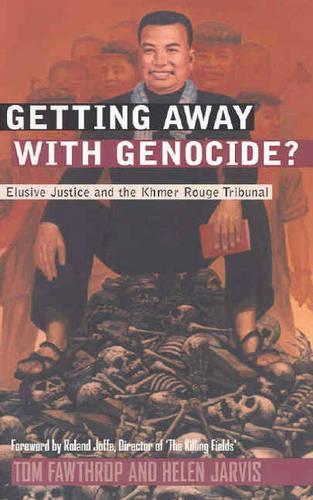
Getting Away with Genocide: Elusive Justice and the Khmer Rouge Tribunal
(Paperback, Illustrated edition)
Publishing Details
Getting Away with Genocide: Elusive Justice and the Khmer Rouge Tribunal
By (Author) Tom Fawthrop
By (author) Helen Jarvis
UNSW Press
UNSW Press
1st December 2004
Illustrated edition
Australia
Classifications
General
Non Fiction
War crimes
Human rights, civil rights
959.6042
Physical Properties
Paperback
320
Width 135mm, Height 215mm
400g
Description
Twenty-five years after the overthrow of the Pol Pot regime, not one Khmer Rouge leader has stood in court to answer for their terrible crimes. Tom Fawthrop and Helen Jarvis show how governments that often speak the language of human rights shielded Pol Pot and his lieutenants from prosecution during the 1980s. Twenty-five years after the overthrow of the Pol Pot regime, not one Khmer Rouge leader has stood in court to answer for their terrible crimes. Tom Fawthrop and Helen Jarvis show how governments that often speak the language of human rights shielded Pol Pot and his lieutenants from prosecution during the 1980s. After Vietnam ousted the Khmer Rouge regime in 1979, the US and UK governments backed the Khmer Rouge at the UN, and approved the re-supply of Pol Pot's army in Thailand. The authors explain how, in the late 1990s, the forgotten genocide became the subject of serious UN inquiry for the first time. The Cambodian government and the UN began complex and often controversial negotiations. In mid-2003 they reached agreement to hold a tribunal in Phnom Penh conducted jointly by international jurists and Cambodian lawyers and judges.
Author Bio
Tom Fawthrop and Helen Jarvis reveal why it took 18 years for the UN to recognise the mass murder and crimes against humanity that took place under the Killing Fields regime. They assess the prospects for this tribunal that could embarrass some former world leaders and a number of governments. When the trial finally takes place the Khmer Rouge will be held accountable for the darkest chapter in Cambodian history.
